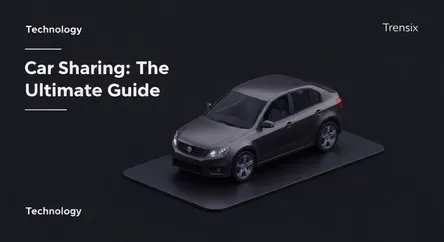Technology
Car Sharing: The Ultimate Guide

Discover car sharing, the flexible and affordable alternative to car ownership. Learn how on-demand vehicle access is changing urban transportation.
What is it?
Car sharing is a model where people rent cars for short periods, often by the hour. It acts as an alternative to ownership, providing access to a vehicle without the associated costs. Services are typically either peer-to-peer, where individuals rent out their personal cars, or fleet-based, where a company manages a network of vehicles. Users find, book, and unlock cars through a smartphone app, making the process seamless and on-demand. This system is built for convenience, with vehicles located throughout urban areas for easy access whenever needed.
Why is it trending?
The rise of car sharing is driven by urbanization and economics. As more people live in cities, parking becomes scarce and owning a car grows impractical. The high cost of ownership—including insurance, fuel, and maintenance—makes on-demand access a financially appealing alternative. The broader "sharing economy" trend and a growing focus on sustainability have also fueled its popularity. Technology is the core enabler; smartphone apps and GPS make it incredibly simple to locate and book shared vehicles instantly, meeting modern consumer demands for convenience and efficiency.
How does it affect people?
Car sharing offers significant benefits to individuals and communities. For users, it provides affordable, flexible mobility without the financial burden of ownership. This is especially useful for those who only need a car occasionally. For cities, widespread adoption can lead to reduced traffic congestion, lower demand for parking spaces, and decreased carbon emissions as fewer cars are needed overall. It also empowers car owners on peer-to-peer platforms to earn passive income from their underutilized vehicle, transforming a personal expense into a source of revenue.